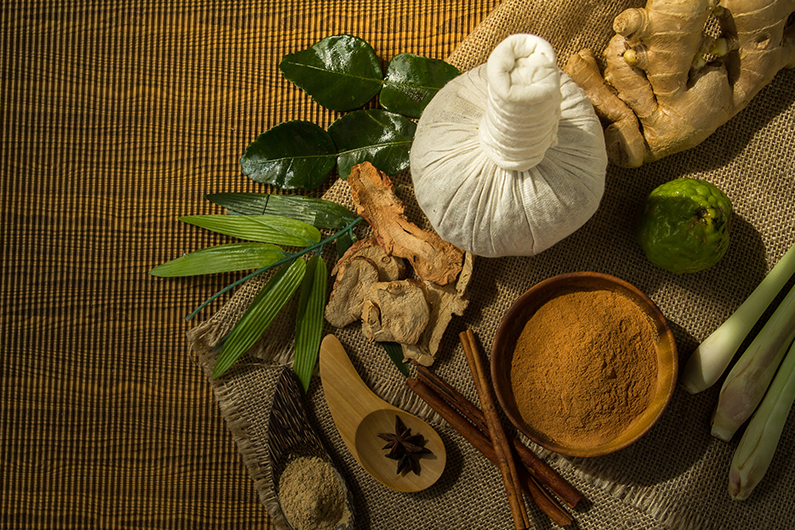
About Ayurveda
Ayurveda was codified into a text called the Charaka Samhita by the legendary physician Charaka in the second century BC. It since travelled with traders and scholars to China, Egypt, Arabia and Europe, laying the foundation for plant-based healing all over the world.
Ayurveda expounds a way-of-life, focusing on the balance between mind, body and soul, where true beauty comes from within. It uses fundamental concepts of balance and harmony to assess the inherent disposition individuals are born with, called Prakruti. This in turn is shaped by the governing forces of all Life, or the Doshas. Ayurveda views individuals as a microcosm of nature based on how synchronised the individual’s Doshas are. Doshas in a state of imbalance are believed to be in Vikruti, leading to a weakened immune system and potential disease. Ayurveda was codified into a text called the Charaka Samhita by the legendary physician Charaka in the second century BC. It since travelled with traders and scholars to China, Egypt, Arabia and Europe, laying the foundation for plant-based healing all over the world. Ayurveda expounds a way-of-life, focusing on the balance between mind, body and soul, where true beauty comes from within. It uses fundamental concepts of balance and harmony to assess the inherent disposition individuals are born with, called Prakruti.
This in turn is shaped by the governing forces of all Life, or the Doshas. Ayurveda views individuals as a microcosm of nature based on how synchronised the individual’s Doshas are. Doshas in a state of imbalance are believed to be in Vikruti, leading to a weakened immune system and potential disease. Ayurveda is the world’s oldest documented body of medical knowledge for physical, spiritual and psychological wellbeing
Ayurveda is considered as one of the oldest of the traditional systems of medicine (TSMs) accepted worldwide.